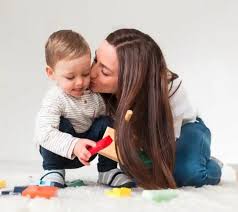Effective Strategies For Handling Aggressive Behavior In Toddlers

Toddlers are known for their boundless energy, curiosity, and zest for exploration. However, as they grow in the environment around them, they may sometimes exhibit aggressive behaviors such as hitting, biting, or throwing tantrums. While aggression is a normal part of toddler development, it can be challenging for parents and caregivers to manage effectively. In this article, we will look into the causes of aggressive behavior in toddlers, effective strategies for handling it, and tips for promoting positive behavior.
Understanding Aggressive Behavior in Toddlers
Aggressive behavior in toddlers can manifest in various forms, including hitting, biting, kicking, scratching, and throwing objects. These behaviors often come from a combination of factors, including:
- Frustration: Toddlers have limited communication skills and may become frustrated when they are unable to express their needs or desires.
- Impulse Control: Toddlers are still developing their ability to regulate their emotions and impulses, which can lead to impulsive and reactive behaviors.
- Imitation: Toddlers may mimic aggressive behaviors they observe in others, such as siblings, peers, or even adults.
- Testing Boundaries: Toddlers are curious about their environment and may test boundaries to understand the consequences of their actions.
Effective Strategies for Handling Aggressive Behavior In Toddlers
When faced with aggressive behavior in toddlers, it is essential to respond calmly and consistently. Here are some effective strategies for handling aggression:
- Stay Calm: Take a deep breath and remain calm when responding to aggressive behavior. Yelling or becoming visibly upset can escalate the situation further.
- Set Clear Limits: Establish clear and age appropriate rules for behavior, and consistently enforce them. Use simple language to explain why certain behaviors are unacceptable.
- Use Positive Reinforcement: Praise and reward positive behavior to reinforce desired actions. Offer praise when your toddler demonstrates patience, sharing, or kindness towards others.
- Provide Alternative Outlets: Encourage your toddler to express their emotions in constructive ways, such as through art, music, or physical activity. Offer sensory toys or objects to help them release pent up energy.
- Teach them Empathy: Help your toddler develop empathy by teaching them to recognize and understand the feelings of others. Use storytelling or role-playing to illustrate how their actions can impact others.
- Model Positive Behavior: Be a positive role model for your toddler by demonstrating patience, kindness, and empathy in your interactions with others. Children learn by observing and imitating adult behavior.
- Offer Support and Reassurance: Validate your toddler’s feelings and offer support when they are upset or frustrated. Use comforting words and gestures to reassure them that you are there to help.
- Seek Professional Help if Needed: If aggressive behavior persists or escalates despite your efforts to address it, consider seeking guidance from a pediatrician, child psychologist, or behavior specialist. They can provide additional support and guidance tailored to your child’s specific needs.
Tips for Promoting Positive Behavior
In addition to addressing aggressive behavior, it is essential to promote positive behavior and social emotional development in toddlers. Here are some tips for fostering positive behavior:
- Encourage Cooperation: Encourage your toddler to participate in cooperative activities, such as taking turns, sharing toys, and working together on simple tasks.
- Provide Structure and Routine: Establishing a predictable daily routine can help reduce stress and anxiety in toddlers, leading to more predictable behavior.
- Offer Choices: Give your toddler age appropriate choices throughout the day to promote autonomy and independence. For example, let them choose between two snack options or two outfits to wear.
- Create a Safe and Nurturing Environment: Ensure that your home environment is safe and conducive to positive behavior. Remove potential hazards and provide opportunities for active play and exploration.
- Foster Positive Relationships: Encourage positive interactions with siblings, peers, and caregivers. Arrange playdates and social outings to help your toddler develop social skills and friendships.
- Practice Patience: Remember that toddlerhood is a period of rapid growth and development. Be patient and understanding as your child learns to grow with their emotions and behavior.
- Celebrate Achievements: Acknowledge and celebrate your toddler’s accomplishments, no matter how small. Positive reinforcement and encouragement can motivate them to continue behaving in positive ways.
SEE ALSO:
Teaching Empathy and Respect to Toddlers
Effective Positive Discipline Strategies For Toddlers
Diapering Tips and Techniques For New Parents
Takeaway
Handling aggressive behavior in toddlers can be challenging, but with patience, consistency, and positive reinforcement, it is possible to promote positive behavior and social-emotional development. By understanding the causes of aggression, employing effective strategies for managing it, and promoting positive behavior, parents and caregivers can help their toddlers grow through this developmental stage with confidence and resilience. Remember to seek support from professionals if needed, and above all, approach parenting with love, understanding, and empathy.
Leave a Reply